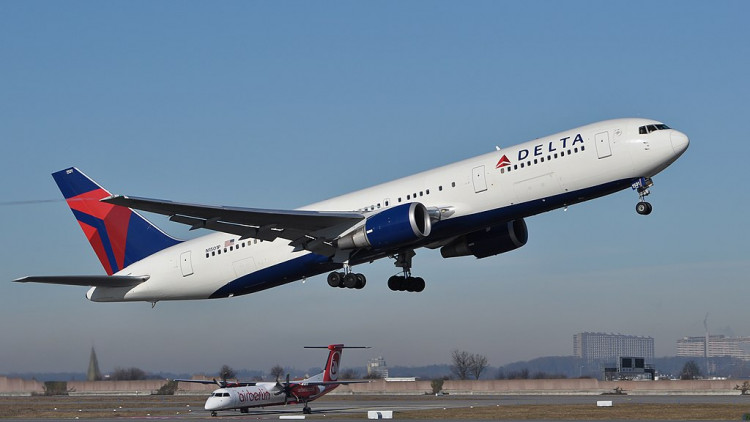Shares of Delta Air Lines plunged 14% Tuesday, leading a broader selloff in airline stocks, after the carrier dramatically cut its first-quarter profit forecast, citing a sharp downturn in consumer and corporate travel spending amid mounting economic uncertainty.
Delta now expects earnings per share of between 30 cents and 50 cents for the first quarter, significantly below the previous projection of 70 cents to $1.00 provided in January. CEO Ed Bastian highlighted deteriorating business conditions, stating to CNBC: "We saw companies start to pull back. Corporate spending started to stall."
This downbeat outlook signals escalating trouble within the airline industry, which until recently had been optimistic about resilient consumer spending, despite persistent inflation and tariffs imposed by President Donald Trump's administration.
Other major U.S. airlines quickly followed Delta's lead, reflecting similar pressures. American Airlines highlighted "softness in the domestic leisure segment, primarily in March," compounded by disruptions following the crash of Flight 5342 in January. Southwest Airlines attributed its weaker demand to reductions in government travel and broader "softness in bookings and demand trends."
The collective warnings from Delta, American, and Southwest sent a wave of concern through travel-related sectors. On Tuesday morning, American's shares fell nearly 9%, and United Airlines saw an 11% drop. The S&P 500 passenger airlines index has now declined 22% over the past month, compared with the broader S&P 500's 7.5% fall.
Investor anxiety intensified as Delta, typically seen as better insulated from economic downturns due to its affluent and diversified customer base, reported unexpected weakness. According to Bastian, key industries-including aerospace, automotive, technology, media, and entertainment-showed pronounced declines in travel bookings.
"Consumers in a discretionary business do not like uncertainty," Bastian added, underscoring widespread caution fueled by tariff-driven instability and fears of a potential recession.
Economists share the airlines' growing unease. The Atlanta Federal Reserve's closely watched GDPNow tracker recently projected the U.S. economy could contract in the first quarter. Goldman Sachs economists also reduced their growth forecast for 2025, citing President Trump's trade policies and weakening consumer confidence.
Consumer sentiment appears notably fragile. A Federal Reserve Bank of New York report released Monday indicated American households are increasingly pessimistic about their financial outlook, signaling potential further declines in discretionary spending.
Delta's revenue expectations for the first quarter reflect the shifting sentiment, with anticipated growth between 3% and 4%, sharply lower than its earlier estimate of 7% to 9%. Analysts from Jefferies noted the airline's revised forecast was expected but described the magnitude of the cut as unexpectedly severe.




